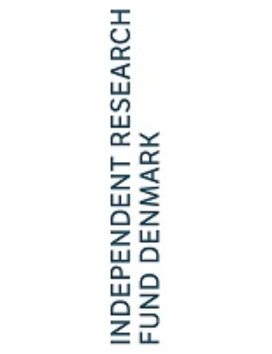Objective
In order to promote the education of researchers and strengthen internationalisation, DFF offers the funding instrument Sapere Aude (i.e., ”dare to know”). The objective of this initiative is to develop the qualifications and competencies of the best research talents, both nationally and internationally.
Sapere Aude: DFF-Starting Grant is aimed at Danish as well as non-Danish researchers. You can apply for a maximum amount of DKK 4,300,000, excluding overhead/administration expenses, for a Sapere Aude: DFF-Starting Grant of up to 4 years’ duration.
Sapere Aude: DFF-Starting Grant is aimed at providing excellent younger researchers, i.e., researchers who have carried out top class research in their field, with the opportunity to develop and strengthen their research ideas as well as their competencies as independent research leaders of other researchers. The funding instrument also aims at promoting careers, international as well as national mobility among research environments, and to strengthen networks. Sapere Aude: DFF-Starting Grants are Independent Research Fund Denmark - Call for proposals - Autumn 2023 and Spring 2024 12 targeted at top researchers who intend to gather a group of researchers and/or research students to carry out a research project at a high, international level. Sapere Aude: DFF-Starting Grant furthermore strengthens the possibility for excellent younger researchers to return to a Danish research institution after a research stay abroad.
DFF expects that a Sapere Aude: DFF-Starting Grant prepares the grant recipient to apply for an ERC funding instrument, or a similar international programme.
DFF expects to award approx. 37 grants in 2023.
Applicant requirements
Sapere Aude: DFF-Starting Grant is aimed at younger, very talented researchers, who at the time of the application deadline, and within the last 3-8 years, have obtained their PhD or achieved equivalent qualifications, e.g., a positive assistant professorship evaluation (”adjunktbedømmelse”), and who have demonstrated the ability to carry out original research at a high, international level. Previous management experience and mobility will be viewed positively in the assessment of your application.
The exact date on which your PhD degree was awarded, as it appears from the signature on your PhD diploma, must be stated in the application form in e-grant.
If you, as the applicant, are not an associate professor and have not been awarded a positive associate professor assessment (“lektorbedømmelse”) and the project involves the education of researchers, you must account for how the relevant supervision will be provided, and how the research student’s scientific association to the project will be ensured.
If DFF finds your application to be among the very best, the final evaluation will consist of an interview with you as the applicant wherein you will be asked to present your project. In addition to DFF’s assessment criteria, you will be assessed based on your ability to present your project in a clear and comprehensible way during the interview, including to researchers who are not experts in your scientific field.
In order to promote the education of researchers and strengthen internationalisation, DFF offers the funding instrument Sapere Aude (i.e., ”dare to know”). The objective of this initiative is to develop the qualifications and competencies of the best research talents, both nationally and internationally.
Sapere Aude: DFF-Starting Grant is aimed at Danish as well as non-Danish researchers. You can apply for a maximum amount of DKK 4,300,000, excluding overhead/administration expenses, for a Sapere Aude: DFF-Starting Grant of up to 4 years’ duration.
Sapere Aude: DFF-Starting Grant is aimed at providing excellent younger researchers, i.e., researchers who have carried out top class research in their field, with the opportunity to develop and strengthen their research ideas as well as their competencies as independent research leaders of other researchers. The funding instrument also aims at promoting careers, international as well as national mobility among research environments, and to strengthen networks. Sapere Aude: DFF-Starting Grants are Independent Research Fund Denmark - Call for proposals - Autumn 2023 and Spring 2024 12 targeted at top researchers who intend to gather a group of researchers and/or research students to carry out a research project at a high, international level. Sapere Aude: DFF-Starting Grant furthermore strengthens the possibility for excellent younger researchers to return to a Danish research institution after a research stay abroad.
DFF expects that a Sapere Aude: DFF-Starting Grant prepares the grant recipient to apply for an ERC funding instrument, or a similar international programme.
DFF expects to award approx. 37 grants in 2023.
Applicant requirements
Sapere Aude: DFF-Starting Grant is aimed at younger, very talented researchers, who at the time of the application deadline, and within the last 3-8 years, have obtained their PhD or achieved equivalent qualifications, e.g., a positive assistant professorship evaluation (”adjunktbedømmelse”), and who have demonstrated the ability to carry out original research at a high, international level. Previous management experience and mobility will be viewed positively in the assessment of your application.
The exact date on which your PhD degree was awarded, as it appears from the signature on your PhD diploma, must be stated in the application form in e-grant.
If you, as the applicant, are not an associate professor and have not been awarded a positive associate professor assessment (“lektorbedømmelse”) and the project involves the education of researchers, you must account for how the relevant supervision will be provided, and how the research student’s scientific association to the project will be ensured.
If DFF finds your application to be among the very best, the final evaluation will consist of an interview with you as the applicant wherein you will be asked to present your project. In addition to DFF’s assessment criteria, you will be assessed based on your ability to present your project in a clear and comprehensible way during the interview, including to researchers who are not experts in your scientific field.
